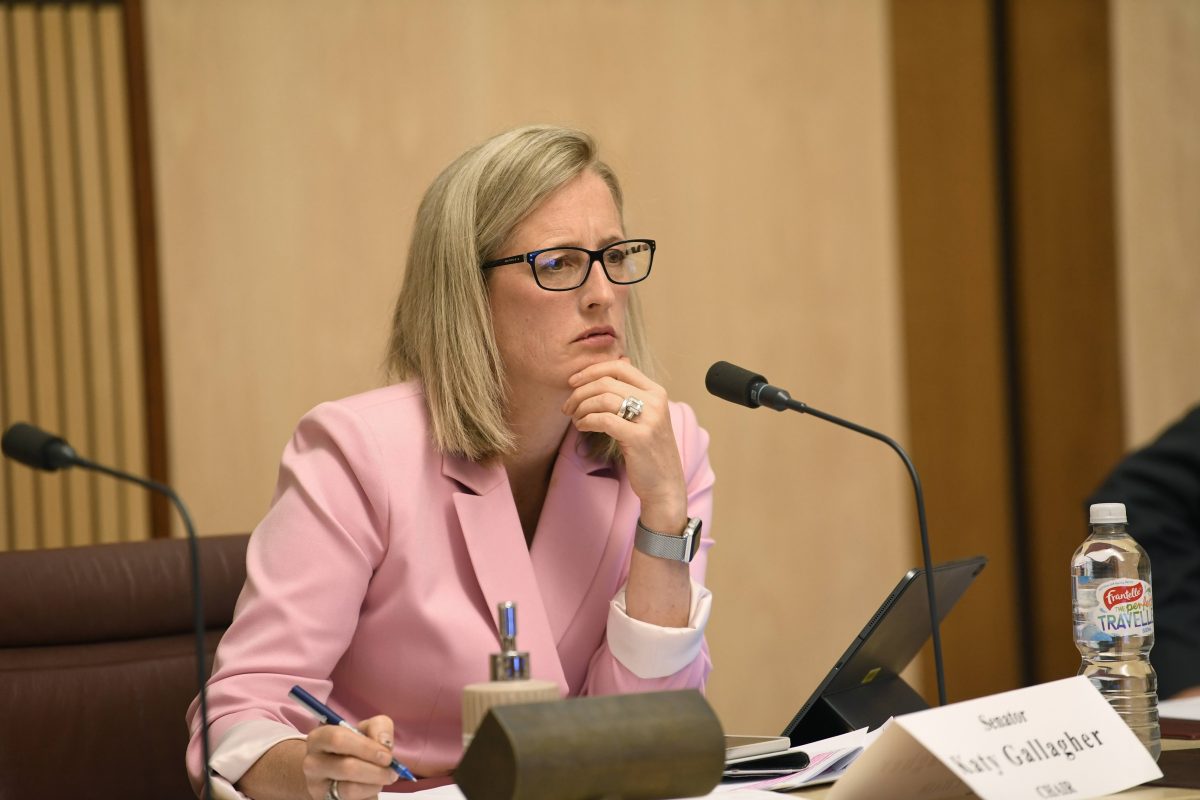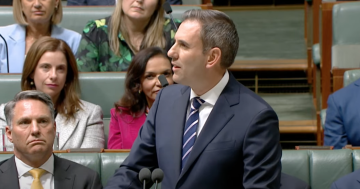
Public Service Minister Katy Gallagher labelled the PwC incident as “outrageous” and one that seriously challenged trust in the consultancy sector. Photo: Auspic.
Senator Katy Gallagher says the newly established National Anti-Corruption Commission will be able to decide for itself whether it should look into the PricewaterhouseCoopers tax scandal if the matter is referred to once it starts operations in July.
And she has repeated the Federal Government’s position that an over-reliance on external consultants in the Australian Public Service is coming to an end.
During an ABC radio interview on Thursday (18 May), the Public Service Minister was asked whether the NACC would have the power to investigate PwC, and whether she thought it should do so.
Former PwC partner Peter-John Collins lost his registration as a tax agent for two years after a Tax Practitioners Board investigation found him guilty of integrity breaches.
The TPB investigation began shortly after Mr Collins left PwC in October last year.
It revealed that while a partner of PwC, Mr Collins was part of a confidential Treasury consultation about improving tax laws in an effort to stop multinational tax avoidance.
The TPB found Mr Collins made unauthorised disclosures of this confidential law reform information and, in so doing, failed to act with integrity, as required under his professional, ethical and legal obligations.
There are suggestions the shared secret information was used to help PwC clients in Australia and the US avoid tax.
The Greens want the matter to be a high priority for the NACC and will refer PwC to it for investigation.
But a legal debate has arisen as to whether the NACC would have the authority to investigate the incident, as the status of its advice could be a technically grey area.
The NACC will only be able to investigate allegations of corruption involving public officials and “contracted service providers” hired to provide services to the government.
But it remains unclear whether Mr Collins falls within that definition.
Geoffrey Watson, from the Centre for Public Integrity, has been reported as saying PwC and Mr Collins could escape NACC scrutiny on a technicality.
“Quite often these types of consultative services are provided for free, so they wouldn’t be a contractor,” he said.
“They are provided for free because it is a way of fostering good relations and it could make money for PwC in due course.”
But Greens senator Barbara Pocock, who spearheaded an ongoing Senate inquiry into the scandal, says the PwC case is a clear example of what should be investigated by the NACC.
“If a case such as this can’t be investigated by the NACC, then we clearly have a problem with our brand new anti-corruption watchdog,” Senator Pocock said.
Senator Gallagher labelled the PwC incident as “outrageous” and one that seriously challenged trust in the consultancy sector.
But she added that the NACC would have a lot of power to investigate matters referred to it.
“Any person can refer any matter to the Anti-Corruption Commission. And so, you know, whether they want to look (into it), I think that’s a matter for them,” she said.
“That’s the legislation that we’ve set up, that, you know, they consider referrals and they make decisions about what they investigate and what they don’t.
“And it’s entirely appropriate that they do that.
“On the broader point of consultants … I think we should be reducing our reliance on them.
“I’ve been clear about that as well. We need a public service that can do the work the Australian people expect, that should be supported from time to time by consultants.
“But it shouldn’t be, you know, the natural go-to place when we’ve got a problem, that we try and hire in external help.
“And so that’s part of the work we’re doing to rebuild and reform the public service because ultimately, that’s the institution that we need to protect and strengthen.”
PwC has appointed former Telstra boss Ziggy Switkowski to lead an independent inquiry into its culture and business practices, in light of the breach-of-trust incident.




















